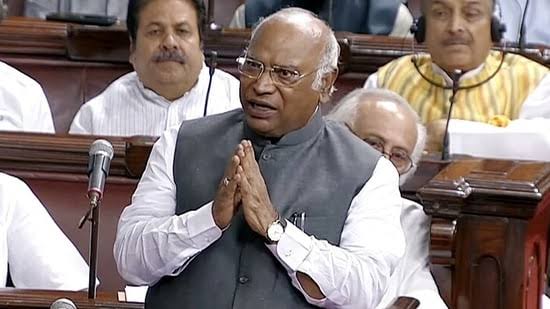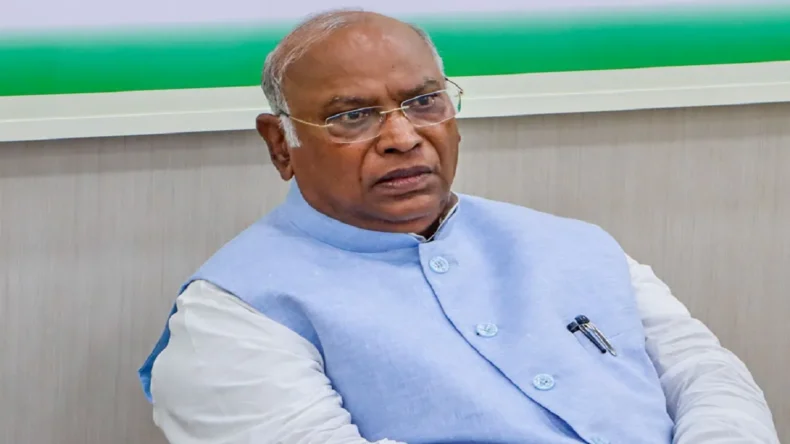
Congress President Kharge Advocates for Equal Representation of Opposition in Rajya Sabha.
Mr Kharge spoke on several issues, exceeding the allotted time.
On the inaugural day of a special session of the Rajya Sabha, Congress president Mallikarjun Kharge voiced concerns regarding the limited opportunities afforded to the Opposition to present their perspectives on a spectrum of critical subjects within the parliamentary setting. Addressing Rajya Sabha Chairman Jagdeep Dhankhar, Kharge articulated the need for an equitable camera focus on opposition Members of Parliament (MPs) during live telecasts of proceedings, stressing the paramount significance of their active participation.
Kharge eloquently underscored, “We don’t get the chance outside. We do here, so please let us have it,” placing emphasis on the pivotal role that parliamentary discourse plays in shaping policies and decisions that resonate with the citizens. He went on to advocate for an impartial platform that permits every MP to voice their opinions, even when there may be moments of faltering, thereby drawing attention to existing disparities in the punitive measures applied.
Moreover, Kharge contended that the ramifications of these discussions extend beyond the walls of the parliament, sending a powerful message to the public that their concerns are being earnestly considered. He pressed for a conducive environment wherein the constitutional responsibilities executed by MPs receive encouragement not only from the Chairman but also from the governing body.
In an impassioned appeal, Kharge invoked the Chairman’s role as a guardian, underscoring the necessity for protection against potential injustices. He acknowledged the numerical disadvantage faced by the Opposition, warning that if the ruling coalition’s MPs were to launch concerted attacks, they would be compelled to seek refuge in the Chairman’s sanctuary.
Transitioning to a pressing issue, Kharge directed attention towards the ongoing ethnic violence in Manipur. He elucidated that the Opposition had made concerted efforts to prompt the Prime Minister to address the matter within the confines of the house. Expressing palpable frustration, he pointed out, “The problem is that the PM doesn’t even listen to you,” highlighting the uphill battle faced by the Opposition in garnering the attention of the highest executive authority.
Kharge pivoted to procedural matters, advocating for a return to the practice of subjecting bills to rigorous review by Standing Committees. He aptly noted the dwindling frequency of this practice in recent years, positing that it represents a departure from the essence of inclusive governance.
Critiquing the government’s approach, Kharge asserted that there exists a concerted effort to undermine the Opposition through instrumentalities like the Central Bureau of Investigation (CBI) and the Enforcement Directorate (ED). He expressed concern that these agencies were being deployed in a manner inconsistent with their intended purposes, potentially jeopardizing the democratic fabric.
Drawing on the sagacity of Jawaharlal Nehru, Kharge underscored the inestimable value of a robust Opposition in a democratic milieu. He urged against casting aspersions on Nehru’s legacy, imploring for a respectful acknowledgment of his contributions to nation-building.
In a poignant denouement, Kharge recited a Hindi poem that struck at the heart of governance and accountability. Through his verses, he implored for constructive action and unity to redress societal issues and challenges. Kharge subtly alluded to the need for transparent governance and subtly invoked the indelible legacy of leaders who have navigated the nation through tumultuous periods.












